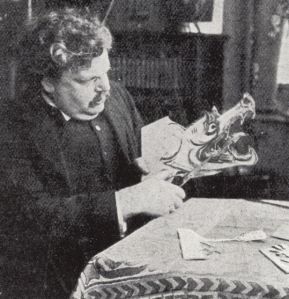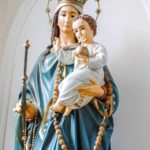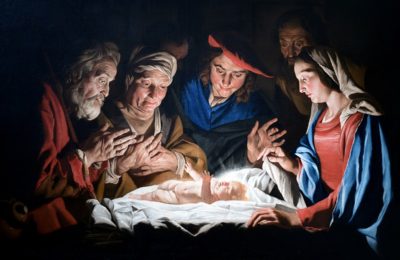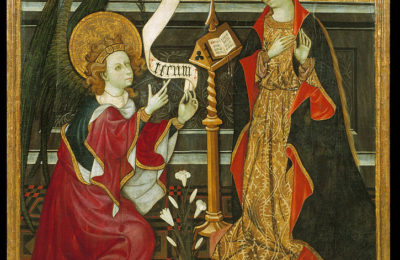Last night, a delightful poem crossed the cell network from Philadelphia to the Ohio Valley, and landed in my phone. It was launched on this journey by a Dominican priest; so, when I saw its source, my interest was piqued. The poem was penned in England, perhaps at Top Meadow?, long ago; and bears the sentiments of one Innocent Smith, aka, Gilbert Keith Chesterton, the famous Catholic writer and Marian devotee. I had never read this particular poem of the great GKC, so I settled into a chair to read it with high expectations; and, of course, it did not disappoint.
Yesterday, in The Marian Room, I posted Chesterton’s In October which is his call to a return to honor. Today, I post this poem which expresses Chesterton’s praise of existence. I do not know if this was written near the end of his life, but it seems to be the voice of one advanced in years, lauding the lows and highs of life. It is the words of a man who has lived; who has seen the world around him, and known the meaning of life.
Life is a gift from God, and such a theme is often found in the work of Chesterton. The Baltimore catechism begins with the purpose of our lives: to know, love and serve God in this life, and to live with Him in the next (paraphrase). Let us love our lives, respect the gift of life that God has bestowed on each of us; and by loving our lives, love God, and give Him thanks.
But to the poem. It is titled The Great Minimum, and begins now:
It is something to have wept as we have wept,
It is something to have done as we have done,
It is something to have watched when all men slept,
And seen the stars which never see the sun.It is something to have smelt the mystic rose,
Although it break and leave the thorny rods,
It is something to have hungered once as those
Must hunger who have ate the bread of gods.To have seen you and your unforgotten face,
Brave as a blast of trumpets for the fray,
Pure as white lilies in a watery space,
It were something, though you went from me today.To have known the things that from the weak are
furled,
Perilous ancient passions, strange and high;
It is something to be wiser then the world,
It is something to be older then the sky.In a time of sceptic moths and cynic rusts,
And fattened lives that of their sweetness tire
In a world of flying loves and fading lusts,
It is something to be sure of a desire.Lo, blessed are our ears for they have heard;
Yea, blessed are our eyes for they have seen:
Let the thunder break on man and beast and bird
And the lightning. It is something to have been.
In my mind, the poem was titled by Chesterton The Great Minimum as a nod to existence: before all other things, existence is the great minimum. If a person does not exist, he is nothing. So once we comprehend the greatness of mere existence, we land in gratitude to God, which is the right place to be (as in, being vs non-being of St. Thomas Aquinas). Chesterton wrote the following in Orthodoxy which expresses this thought:
“Children are grateful when Santa Claus puts in their stockings gifts of toys or sweets. Could I not be grateful to Santa Claus when he put in my stockings the gift of two miraculous legs? We thank people for birthday presents of cigars and slippers. Can I thank no one for the birthday present of birth?”
Even though there have been times, which now continue, when there have been, and are, clouds above us, it is something to have been. (paraphrase GKC).
May you have a good day.
~SCF
~Image: Gilbert Keith Chesterton building a puppet theater; a man-alive.






